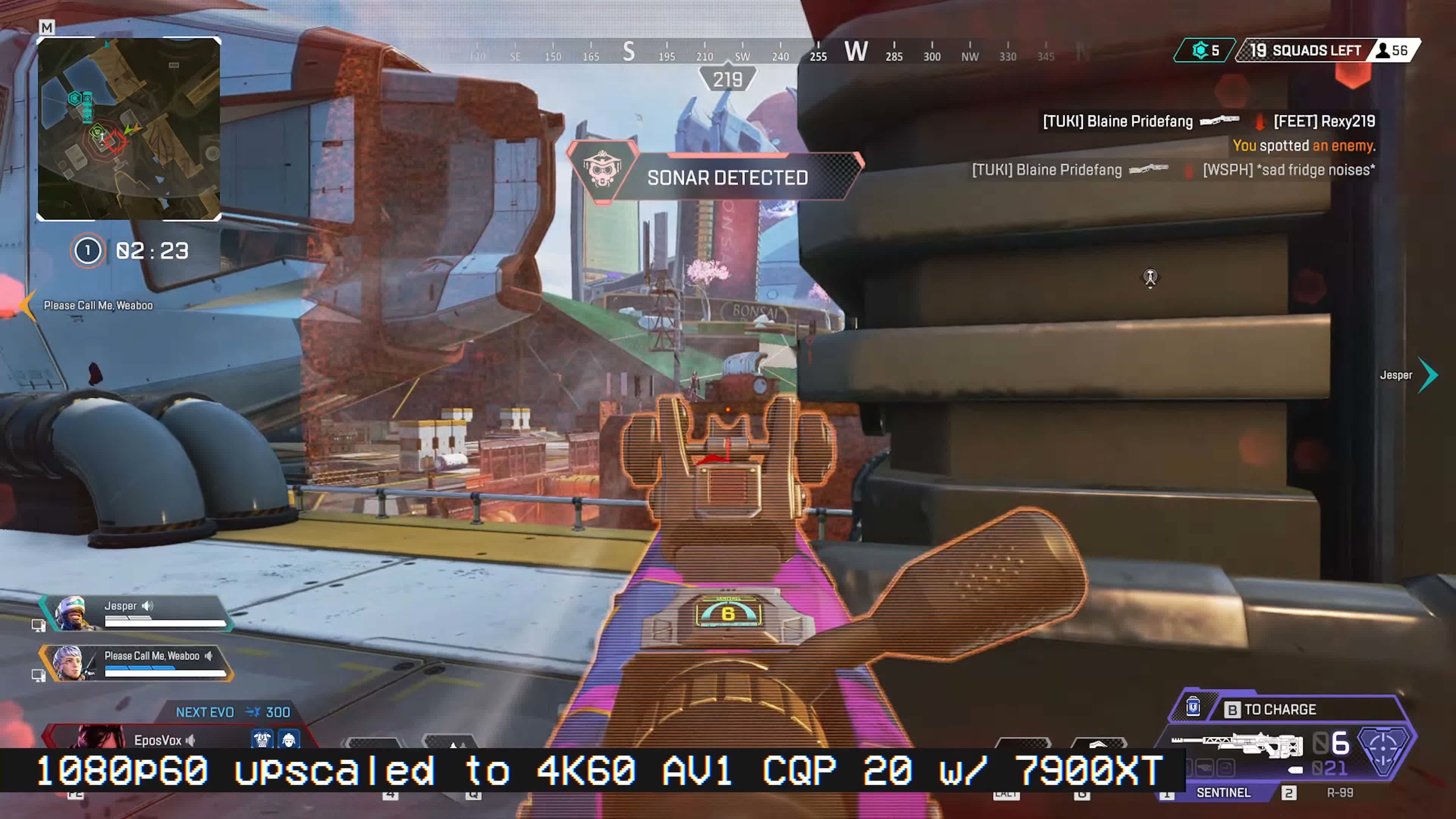Why it matters: AMD’s new AV1 encoder and fully unlocked encode sessions will allow Radeon RX 7000 series GPUs to compete directly against Nvidia RTX GPUs and Intel Arc Alchemist GPUs in the streaming space. Allowing gamers and content creators to game, record, and stream high quality video all at the same time on a single graphics card.
Streaming expert and YouTuber EposVox published a performance preview of AMD’s new AV1 encoder, found in its RX 7000 series GPUs, and found the encoding quality to be surprisingly good for capturing gameplay. In practice, the encoder was able to get very close to Nvidia’s RTX 40 series NVENC encoder and sometimes outperform Intel’s Arc Alchemist counterpart, which is something AMD has not been able to accomplish in years.
EposVox specifically tested with a Radeon RX 7900 XT in several titles, including Apex Legends, Battlefield 2042 and CSGO. In these games, he says encoder performance sits in-between Nvidia and Intel’s AV1 implementations, with AMD’s AV1 encoder looking the worst in Battlefield 2042 and Apex Legends, but looking better than Intel’s AV1 encoder in some situations as well.
Even though AMD’s AV1 encoder doesn’t outright beat its competitors, it is much better than AMD’s H.264 encoders which have been sitting behind Nvidia and Intel’s on a consistent basis. These days, AMD’s AMF H.264 encoder can output good quality videos, thanks to updates from AMD, but it’s still widely regarded as a last place resident when compared to its competitors.
AMD’s new RDNA3 media engine features the first AV1 hardware encoder the company has ever put in a consumer GPU. Previous generations, including the RX 6000 series, were able to decode AV1 videos, but didn’t have the proper hardware to enable AV1 encoding for recording and streaming videos. AV1 is the industry’s latest video codec that is capable of retaining very high image quality, with a small file size in comparison to codecs like H.264.
It should be mentioned however that the encoder is only supported in OBS Studio at this time and it’s still in an immature state. For instance, EposVox says AMD’s reviewers guide demands the use of several FFmpeg options and to manually implement them to get the most out of AMD’s AV1 encodes, which is something OBS should be able to do for you within the software itself. Performance also presents issues, with AMD’s high quality video preset being unusable at 4K / 60 FPS output. But these are things that could be improved with future software updates.
One feature where AMD is able to outperform Nvidia is on the amount of encode sessions the engine is capable of supporting, which appears to be an unlimited number, according to EposVox, compared to just three on Nvidia’s RTX 40 series GPUs. This is something that can be widely sought after by content creators as it allows multiple video recordings or streams to be active at the same time. This is useful for streaming to multiple platforms like Twitch and YouTube, as well as recording streams locally to create shorts at a later date.
Once AMD irons out all the kinks with its AV1 software implementation, AMD’s Radeon RX 7000 looks to be a very capable solution for recording gameplay, with the ability to get very close to Nvidia’s AV1 solution and output more encode sessions at the same time, but only time will tell if this becomes true.
